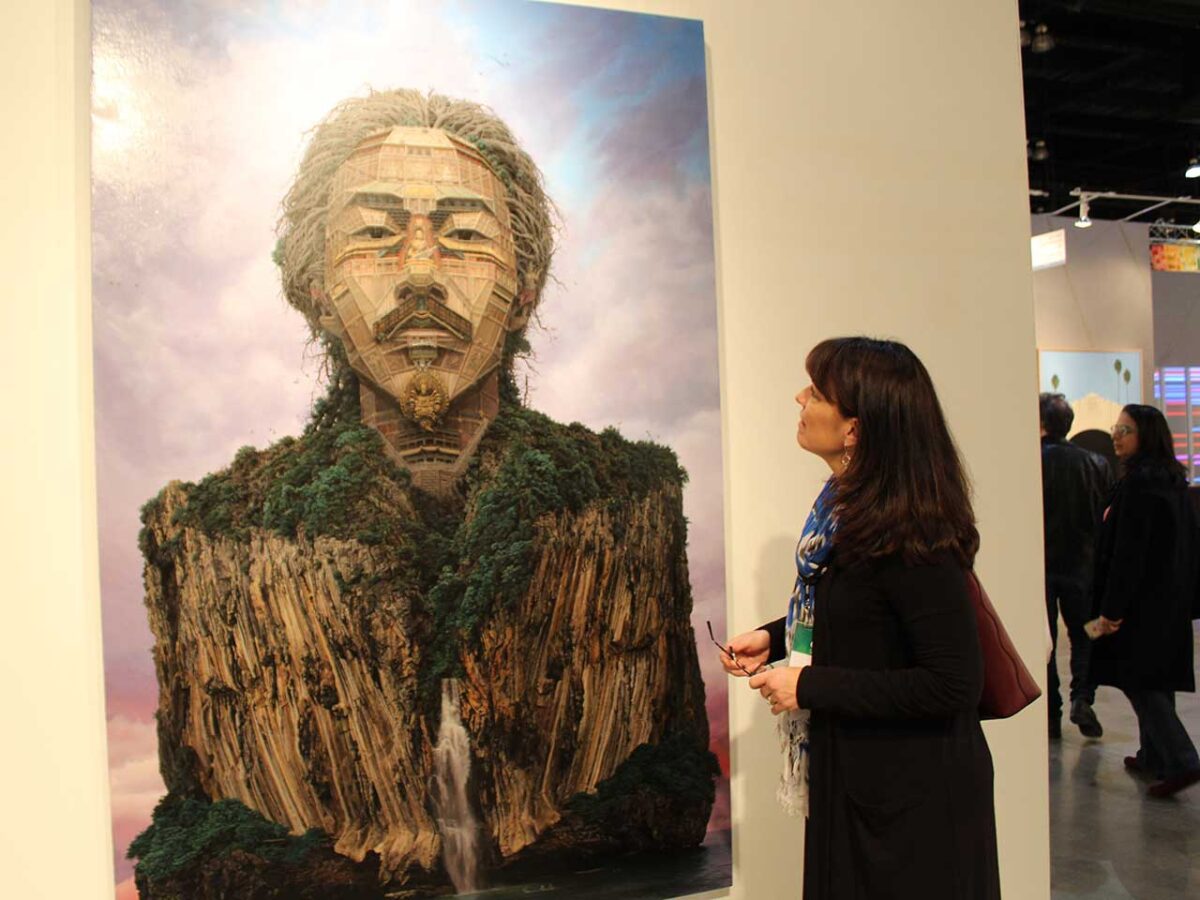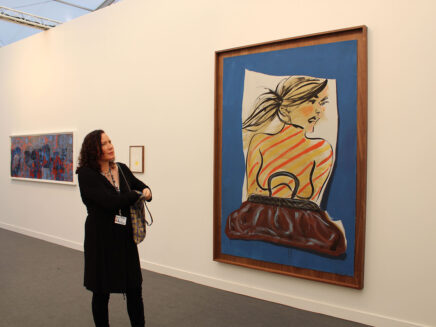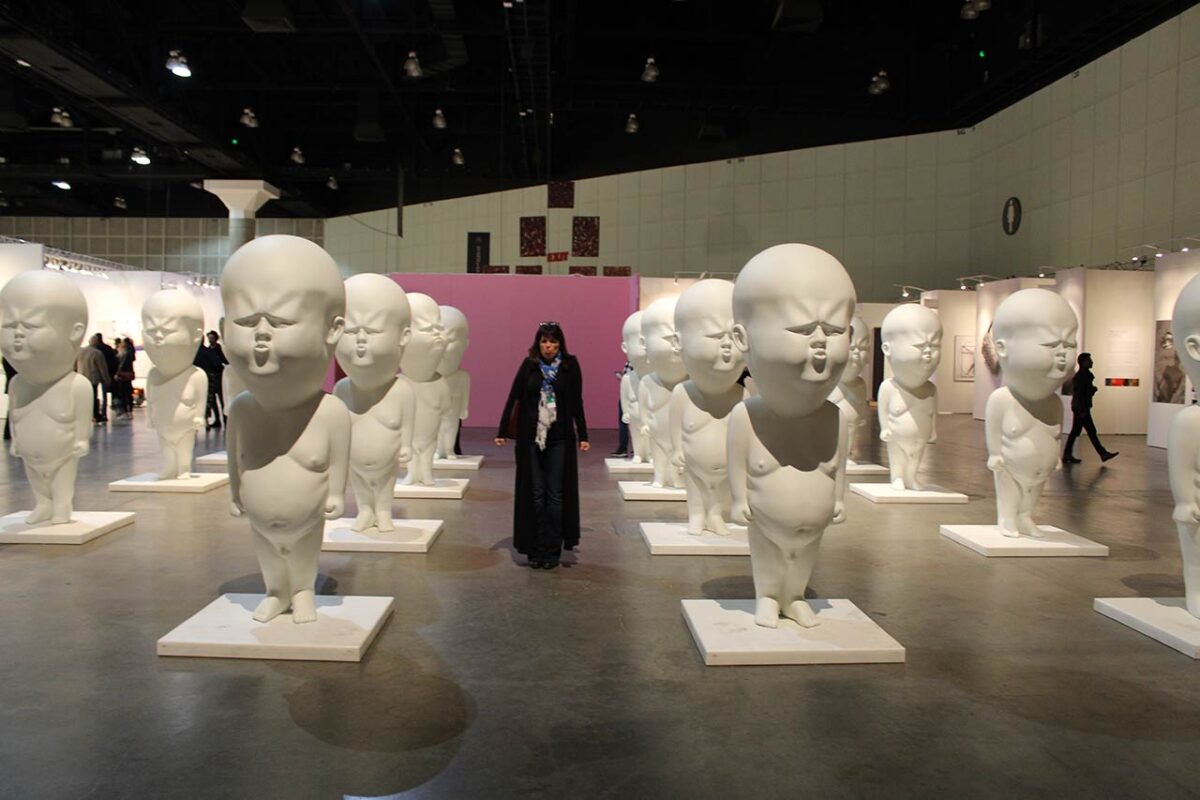photo by Randy Shropshire
Alex Powers is a lesbian who “doesn’t look like a lesbian”. Hailing from Baltimore, MD, she now resides in Los Angeles and has found her spotlight on comedy stages around the city, most notably The Laugh Factory and The Ice House. The comedienne approaches sexuality and gender stereotypes – often the hurtful butt of the joke – with a light heart. Not only do her insights serve her in comedy, but in visual art, music, furniture crafting, and modeling. Her drive to muddle through the muddy spins life’s more unfortunate occurrences into comedic gold. Her MO? “Don’t sweat it and live [your] life”.
“There’s nothing we can’t talk about or process when we see it in a way that makes us laugh.”
T
Natalie Durkin (TribeLA Magazine): Give yourself and your work a tagline and tell us why.
Alex Powers: She’s a Lesbian that “doesn’t look like a lesbian” – whatever that means – and her jokes sound like they were written by a middle-aged straight guy.
That would be my tagline because… it’s accurate.
R
ND: What got you started in comedy? What is the reason you are here today?
AP: A psychic actually told me to do stand-up comedy. He said he “saw me being successful at it”. (Haha.) Two weeks later I got a job as a cocktail waitress at the Baltimore Comedy Factory. They eventually threw me up on stage in front of a sold-out crowd of 300+ people to do a guest spot. Apparently, I crushed, and they had me do every show the rest of the weekend. I had to quit 2 months later because I started booking my own gigs.
But the reason I’m here today is because my biological mother had no plan and made very bad decisions in her early 20s.
I
ND: How do you hope to influence your audience?
AP: I just hope I can remind them that everything is going to be okay. There’s nothing we can’t talk about or process when we see it in a way that makes us laugh. I hope to influence others to be good and to do good. I hope to inspire people to constantly strive towards being their most authentic self – at all costs – so that they can best contribute to making this world more beautiful, especially where there’s ugliness.
B
ND: What do you do when your creativity is blocked?
AP: I don’t sweat it and I live my life. Seriously. My creative expression (and comedic success) hinges on my experiences, and experience makes me relatable. If I’m not allowing myself to have life experiences, be them extraordinary or completely ordinary, I have nothing for you to relate to. When I take time to be a human and devote myself to the other areas of my life, I always wind up having something to write about afterwards.
And in all honesty, I don’t know if I really even believe in blocked creativity… I just think we (artists) can limit creativity by confining it to a rigid definition. Creativity isn’t just art, or music, or theater. Creativity exists in every aspect of our lives, whether you’re a scientist, an auto mechanic, a cook, a clerk whose job is to file paperwork, or a mother who needs to feed her baby while entertaining her toddler as she’s getting ready for work. How do you even pull that off?? Creativity has a practical (and impractical) application in every aspect of every person’s life. As a “creative person”, I try to remain humbled by that and not place a greater value on my creativity over anyone else’s. Creative Inspiration never belonged to me anyway; it’s only a gift I receive with a frequency determined by the Gods.
E
ND: What fires you up and gives you energy?
AP: Change.
Nothing fires me up more than the ability to Move Forward.
NOTE: “Moving Forward” is a common response to a failure. Things don’t always work out the way we want and we have to keep going – sometimes approaching things in a different way – which requires… (wait for it) …Creativity.
L
ND: Can you tell us a little known fact?
AP: Teddy Roosevelt, as President of the United States, wanted to enact a national ban on football for being too violent and dangerous.
A
ND: Where is your favorite place in Los Angeles and why?
AP: I have two. Griffith Park AND Wilshire Blvd Temple (my Synagogue). Griffith Park because I like nature, I like birdwatching, and it’s my dog’s favorite place – she never looks happier than when she’s there. And Wilshire Blvd Temple because the Sanctuary is one the most beautiful structures I’ve ever seen. Both places are breathtaking depending on where you’re standing and [they] awaken me to God and the magnificence of existence.
C
ND: Where is your favorite comedy club to perform?
AP: In Los Angeles? The Ice House in Pasadena. Great crowds, awesome staff. In the rest of the country? Maybe The American Comedy Co. in San Diego or Gotham Comedy Club in New York. In the rest of the world? Stand-Up Factory in Tel Aviv (Israel).
O
ND: Do you engage in other art forms? What mediums of art inspire you?
AP: I do. Luckily, I have tons of outlets. I play some musical instruments, I do comic book art and draw portraits, I occasionally paint, and I design and build furniture. This kind of goes back to the question about blocked creativity too: when I feel like I “can’t write” (but, really, I just don’t want to) I play my guitar instead, or I sketch an elephant, or I build a coffee table, and eventually… I wind up writing comedy again. It’s really that simple. It’s all about forward momentum and not stopping. It’s a principle of physics: less energy is required for an object in motion to change direction than for an object at rest to start moving again. Duh.
For my own inspiration, as much I enjoy music, movies, and art, I’m most inspired by life and by people.
M
ND: How do you make comedy? Briefly chronicle your creative process.
AP: I don’t think there’s anything I could say here that I haven’t already. In brief: My creative process is living. And luckily, life is already funny. I just have to notice why.
I
ND: What is the best advice you’ve received and the best advice you can impart onto us?
AP: The best advice anyone ever gave me was to stop drinking. It was really more of a suggestion, but definitely the right one. As a result, on April 14th, 2019, I’ll celebrate 5 years of sobriety and the life I have because of it.
The best advice I can impart to you? Drink more water. AND, maybe take this moment to thank yourself for being here. Thank your body for working, your eyes for seeing, the clean water I just advised you to drink more of, and don’t for one second feel guilty for all the things right in your life. Just be grateful for them. Then take that gratitude and give it away: create a reason for someone else to be grateful today. You’ll feel exceptional, I promise.
C
ND: Any closing words?
AP: Keep. Moving. Forward.
more Alex Powers



